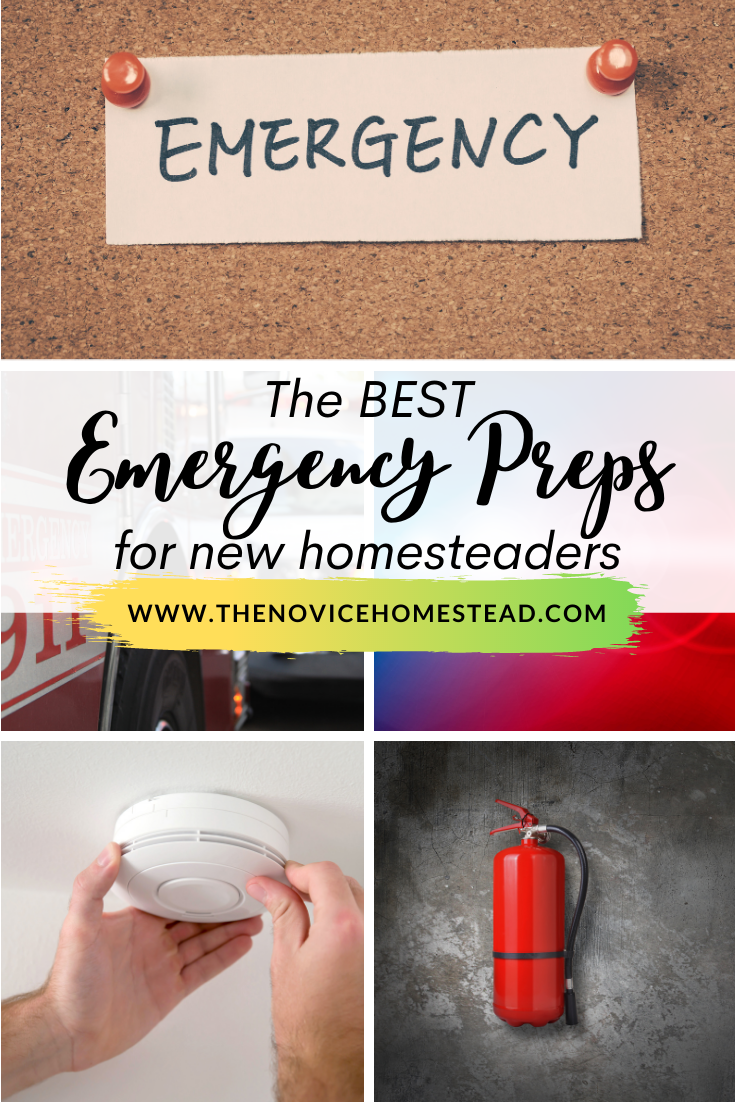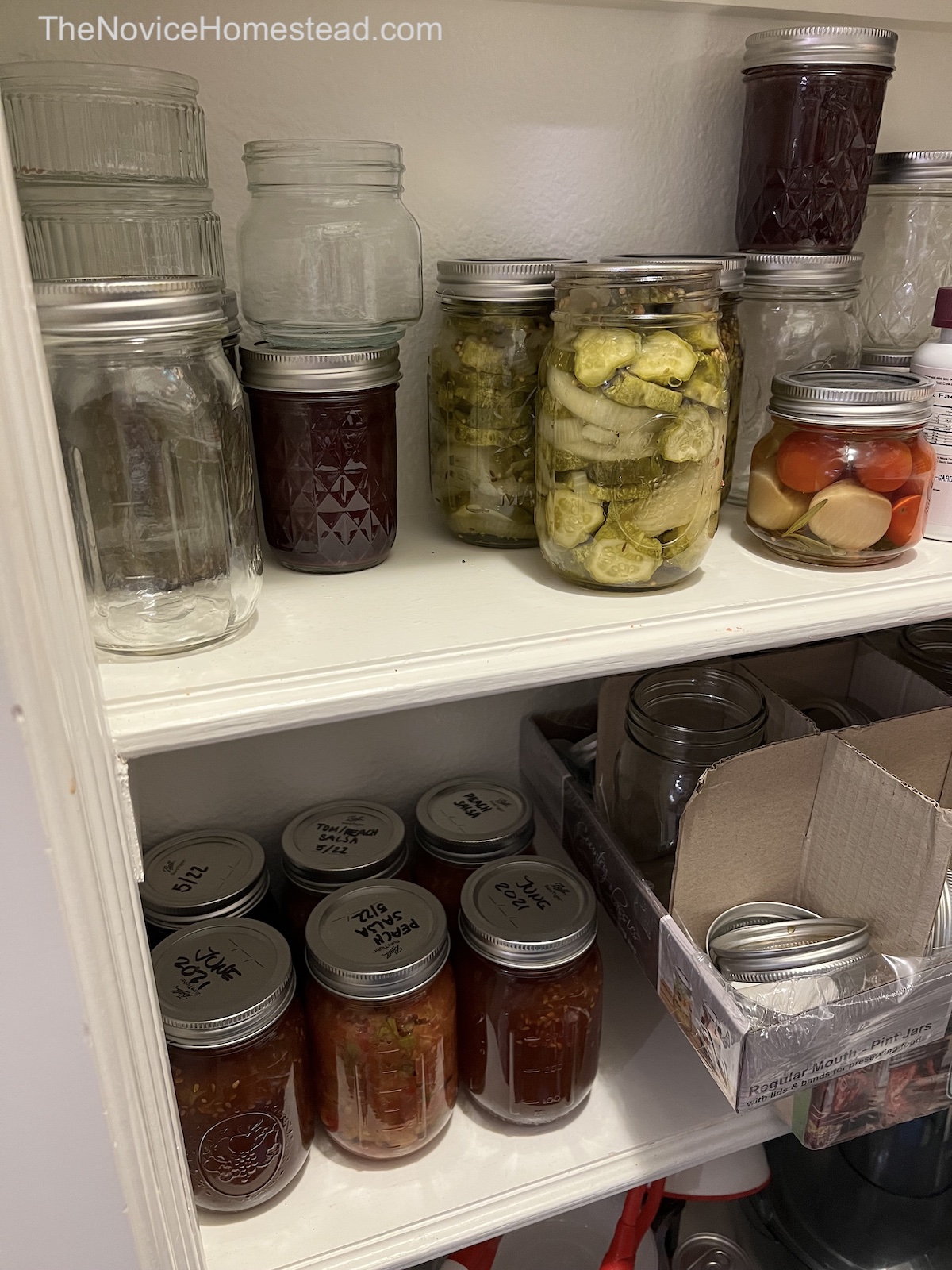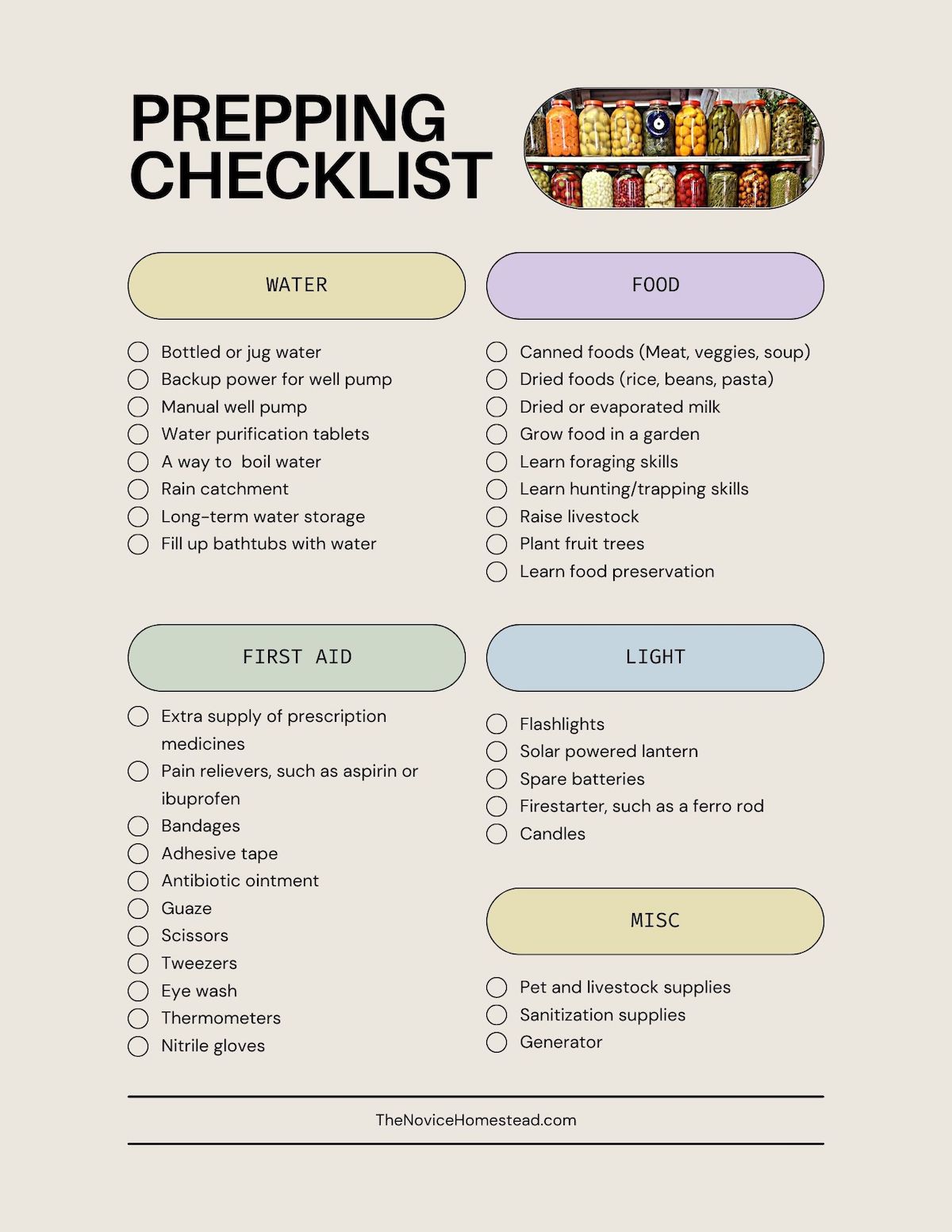Prepping isn’t just for survivalists…it’s crucial for everyone! Learn how to get started with emergency prepping with our step-by-step guide.

Hurricane season is here, so it is my annual reminder to check all of our emergency preps and make sure that our family is ready in case anything happens.
This is a basic list to get started with emergency preps. It is ideal if you are new to homesteading, in the planning stages for a homestead, or simply want to protect your home in case of an emergency.
You don’t have to be a homesteader to be prepared!
What is Prepping?
“Prepping” is a short name for emergency preparedness or disaster preparedness. People who do this are often known as “preppers.”
At its core, prepping is simply taking steps to prepare for and mitigate the effects of a disaster. This can include things like storing food and water, creating an emergency shelter, or learning survival skills.
There are many different reasons why people choose to prep. Some people do it because they live in an area that is prone to natural disasters. Others do it because they are concerned about the possibility of a larger-scale disaster, such as a pandemic or economic collapse. And still others do it simply because they want to be prepared for anything.
How To Start Prepping
The word “prepping” often brings to mind images of bunkers, weapons, and MREs or other disaster rations. And while all of those things would be useful in an emergency, there is so much more to prepping then the stereotype implies!
Here are the things you need to know about “prepping” before you get started:
- First, ANYONE can be a prepper – You don’t have to be “extreme” to be prepared for an emergency. In fact, EVERYONE should have an emergency plan and some basic preps in place, whether you live on a homestead or a city apartment.
- Start Slow – Building an emergency shelter or food stores can be costly. However, you can start with what you can afford right now and add to your preps over time. Prioritize what you would need to survive for 24 hours without power and go from there. Basic shelf-stable food. Water for drinking and flushing toilets. Etc.
- Build Skills, Not Just a Stockpile of Stuff – When prepping, it’s crucial to not just stockpile a bunch of things. It’s also important to learn the skills that you would need to survive in an emergency, such as how to start a fire, what plants in your area are edible, how to grow food in a garden, etc.
Note: We’ve included shop-able ad links to products we love and use; read our disclosure policy here.
10 Emergency Preps For New Homesteaders
1. Water
Water is the most important survival prep. You can survive for much longer without food than you can without water.
A good rule of thumb is to allot one gallon of potable (drinkable) water per person, per day. In a pinch, you could ration down to 1/2 gallon per person, per day.
If you’re just starting your preps or looking to get things going quickly, bottled or jugs of water is a good starting point for the short term.
However, in preparing for a long-term emergency (say, longer than one week), you will need a way to store larger quantities of water, such as barrels. For drinking water, you want to make sure that you find barrels that are made with food-grade materials.
Other water preps:
- Rain catchment system – this could be a way to provide water for crops and livestock during an emergency.
- Power source for your well – If your household runs on well water, you want to make sure that you have a backup source of power to run your well pump or a manual pump that you can use during power outages.
- Water purification tablets – These are handy when you don’t have a way to boil water.
- Fill up the bathtub – When a hurricane is headed our way, I always fill up the bathtubs in our home with water. That way we have a backup for our backups and a way to flush toilets even if our well is unable to be used.
2. Food
I put food preps in two categories: Short-term preps (shelf stable food and emergency rations) and long-term preps (self-sufficiency measures such as raising livestock for protein or growing your own food in a garden). Both are equally important, but you can get the short-term preps put together much more quickly, while building self sufficiency can take time.
At the very least, it’s a good idea to have a supply of non-perishable food with a long shelf life:
- Canned goods (vegetables, fruits, meat, soup)
- Dried food (rice, beans, pasta)
- Energy bars or protein bars
- Dried or evaporated milk
As much as possible, you will want to incorporate some or all of these long-term food sources into your preps:
- Starting a garden to grow fruit and vegetables
- Planting fruit trees and berry bushes
- Raising hens for eggs
- Raising livestock for meat
- Learning hunting or trapping skills
- Learning how to forage and what edible plants grow naturally on your property
The more diverse food sources you have, the better prepared you will be for any sort of disaster. Additionally, it is key to learn skills for preserving the foods you produces, such as water bath canning.

3. First Aid Kit
Basic first aid supplies are a must. Hopefully you won’t need them, but in this area, it is always better to be prepared for minor injuries and ailments so you can treat them at home.
Here are some things to include in a basic first aid kit:
- Bandages
- Antibiotic ointment
- Antiseptic
- Pain relievers
- Aspirin
- Finger splint
- Gauze
- Hand sanitizer
- Extra supply of prescriptions
- Adhesive tape
- Scissors
- Tweezers
- Eyewash
- Thermometer
- Safety pins
- Nitrile gloves
4. Flashlights
A good flashlight is a must on any homestead. Actually, I recommend having multiple types of flashlights: long range, rechargeable, solar powered, camping lanterns, to name a few. That way you have multiple sources of light that can work in different situations.
I prefer flashlights and lanterns to candles because they are brighter and there is always a fire risk with candles.
Try This: An emergency solar lantern is a light source that can be used even when the power is out and does not require batteries. It can be recharged during the day and used each night as needed.
5. Battery-powered Radio
It seems old-fashioned, but in a situation where power is out for a long time or cell service is lost, a hand crank radio can be a link to the outside world and a way to receive emergency notifications.
6. Multi-Tool
A multi-tool is a versatile tool that can be used for a variety of tasks, such as fixing things, cutting wood, and starting fires. Think of it like a souped-up Swiss Army Knife!
7. Fire Starter
If you have a fireplace in the home, an outdoor grill, or if you’re in a camping situation, a firestarter is an extremely helpful tool to have on hand.
A ferro rod is a type of firestarter that is made from a chunk of metal alloy that produces sparks when scraped with a hard surface. Unlike matches, a ferro rod can be used over and over.
8. Storm Shelter
If you live in an area that is prone to natural disasters such as hurricanes or tornados, it is important to have a “safe area” to go to if needed.
In some areas, an underground shelter is not an option. For example, we live near sea level, so flooding makes a basement or underground storm shelter not just impractical, but dangerous.
As an alternative, an interior room or closet, without windows, is your safest place to go in a situation such as a tornado or severe storm.
9. Sanitation and Cleaning Supplies
All your preps are for naught if you don’t have a way to keep your living area and yourselves clean and sanitary.
Basic cleaning items such as bleach or vinegar are good to have on hand at all times.
And of course, while we laughed at toilet paper hoarders in 2020, it’s actually a good idea to have plenty of TP at home. If preparing for a long-term disaster, it is helpful to learn about alternative sources for cleaning oneself such as newspaper or even dried corncobs like the “olden days.” Or, you could invest in a bidet.
Learn More: 7 Alternatives To Hand Sanitizer
10. Pet and Livestock Supplies
As a homesteader, you may have animals and livestock that depend on you for their survival. Your emergency preps should take this into account and provide for their care.
11. Generator
If you live in an area that is prone to disasters such as hurricanes or if you live in an area with undependable electricity service, a generator is a solid investment.
I recommend buying the best generator that you can afford, which will power things that you need for survival.
Related: Is A Whole Home Generator Worth It?
12. Cash
In a long-term disaster where banks are closed or online banking is inaccessible, you want to have cash on hand for emergency purchases. You could even take it one step further and start putting away coins and precious metals. Hopefully it never comes to this point, but again, it’s always better to plan for anything!
Printable Prepping Checklist
Here is a basic checklist for starting your prepping journey:

Get the printable PDF version of this prepping checklist here.
A Few More Things…
When you start prepping, it is important to involve the whole family. Show the kids what you’re doing and why. If you’re learning survival skills, find a class that kids can take too. Show them how to help out in the garden and care for the animals. In order for a survival plan to work, everyone has to be involved and pitch in.
It’s also a good idea to have a plan for different types of emergencies and to talk about it as a family. Do you have a fire escape plan? Does everyone know what to do if there’s a tornado warning? Sometimes in a disaster you have just minutes to act.
You may also notice that I didn’t talk much about fire arms in this post. I’m not going to tell anyone what they need to have on hand in that department, and laws are different in each state. This may be something that you want to have for hunting, self-defense, etc.
Lastly, prepping doesn’t have to be scary. I think prepping is fun because I’m learning new skills and even if there’s not a major emergency in the future, I know that I will be in a better position to survive if there is. Plus I love things like gardening, so that doesn’t feel like work!